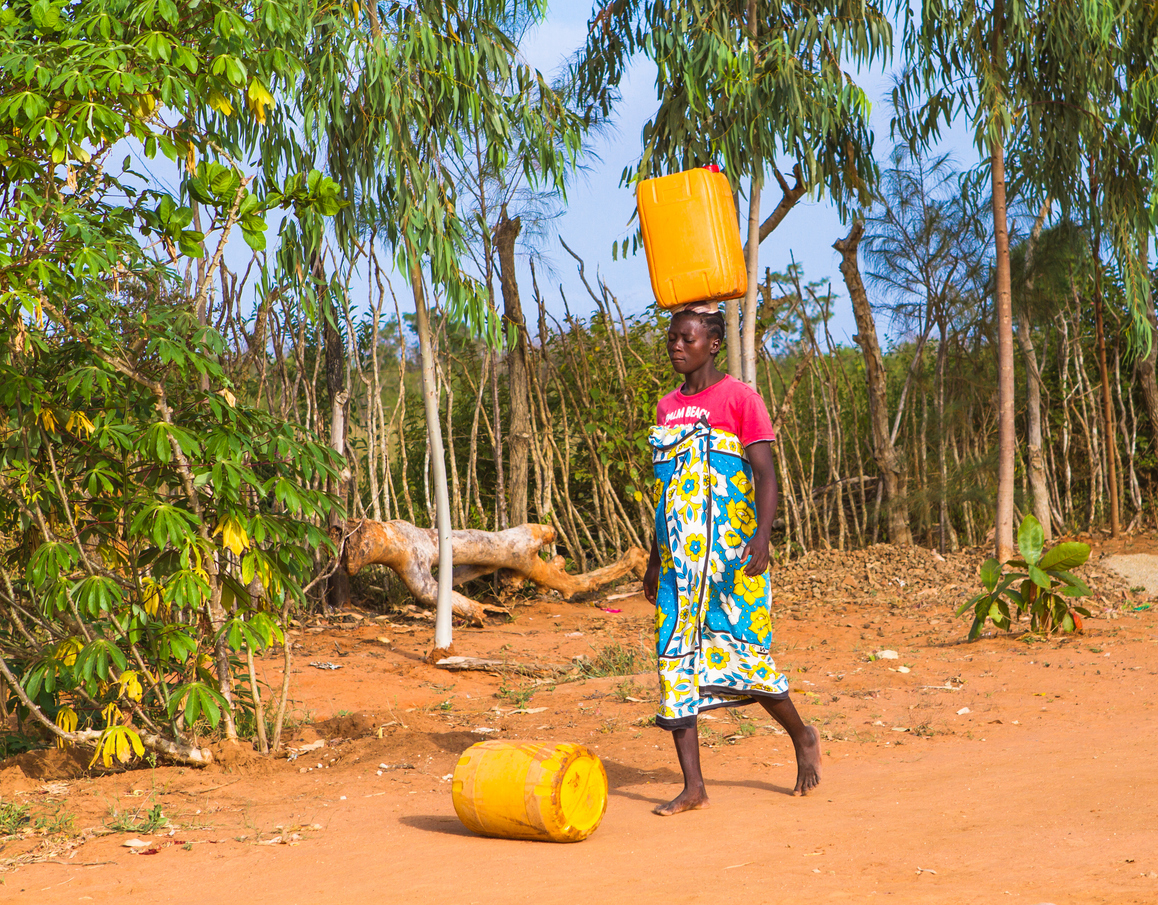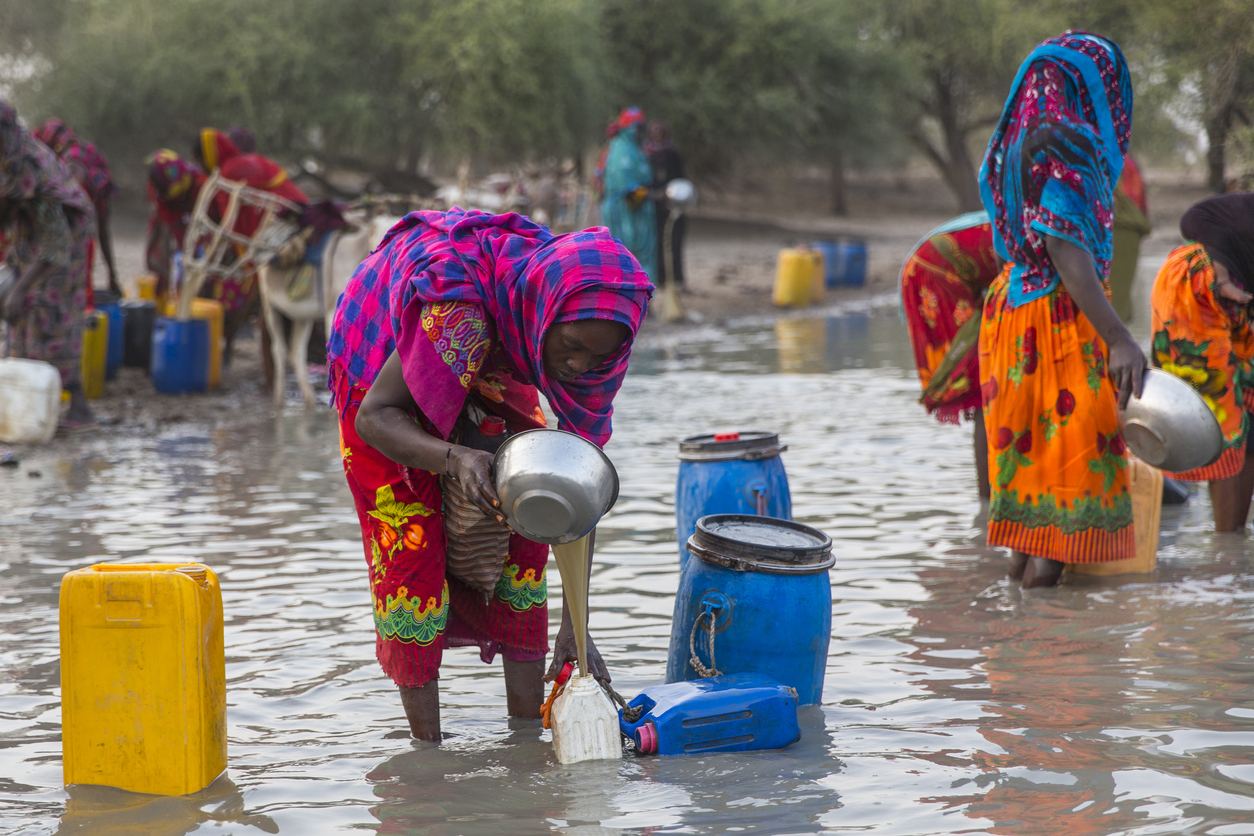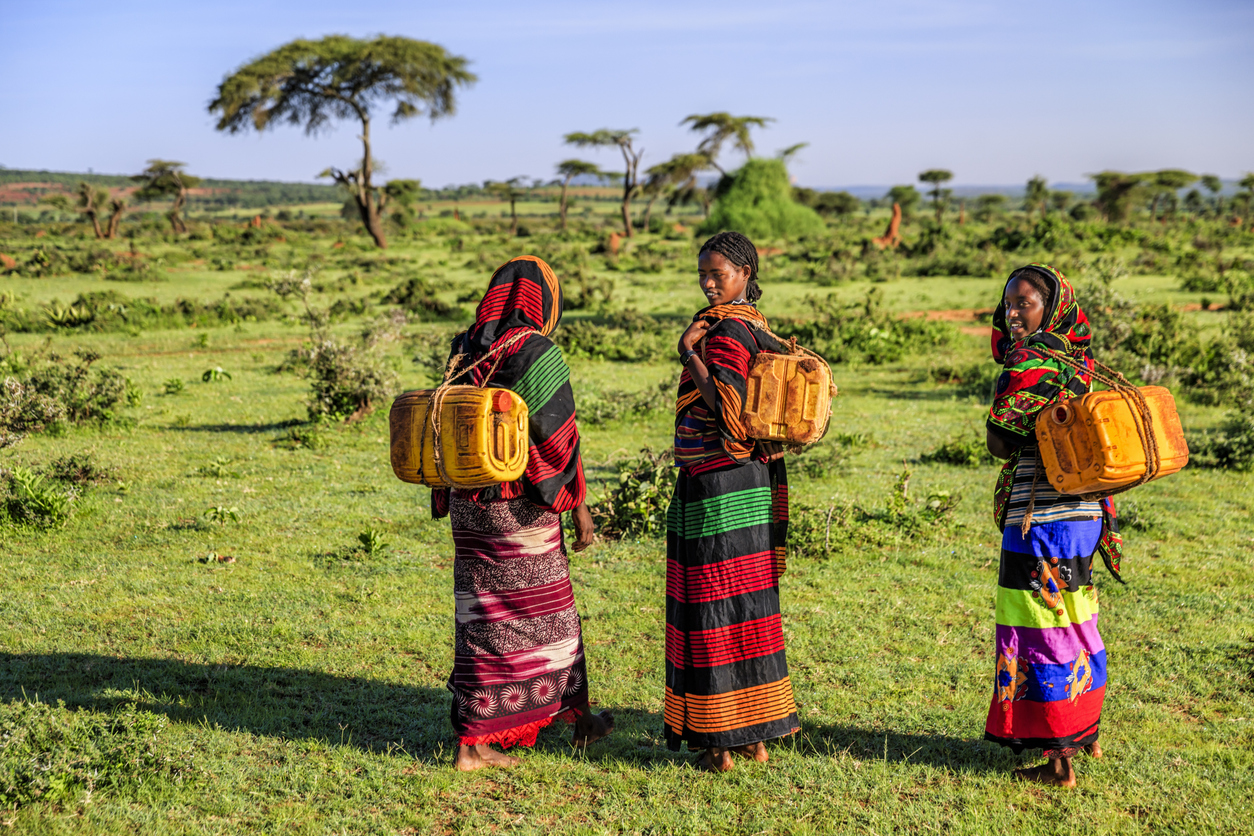Building Gender-Inclusive Infrastructure Strategies for Climate Resilience in Africa
Incorporating a gendered perspective into climate-resilient infrastructure development can enhance effectiveness and mitigate risks of perpetuating inequalities within infrastructure. For this reason, the Global Center on Adaptation (GCA) integrates a gendered lens in developing climate-resilient infrastructure projects. This is an essential focus of its mission.
I
nfrastructure is integral to ensuring equal access to basic services and opportunities for all. However, climate change, extreme weather events, and climate-induced migration are putting immense pressure on infrastructure and services. Moreover, the effects of climate change and disruption of infrastructure services result in a disparity of vulnerability and exposure across genders. This stems from the intersections between gender, power dynamics, socioeconomic structures, and societal expectations.
Our goal, by demonstrating gender-related gaps in climate-resilient infrastructure and strategies to tackle them, is to inspire other institutions to prioritize gender-responsive approaches in their climate adaptation strategies. This blog delves into how GCA has used a gender-responsive approach in three projects under the Africa Adaptation Acceleration Program.
Empowering Women and Strengthening Infrastructure in Kenya

GCA works with governments in Africa on national infrastructure assessments as part of their national climate-resilient infrastructure roadmaps. In Kenya, infrastructure is highly vulnerable to extreme heat, floods, and storms. In many contexts, women are responsible for the supply of household energy and water, which are susceptible to these climate hazards.
In partnership with the University of Nairobi, GCA conducted a climate risk analysis as part of Kenya’s National Climate-Resilient Infrastructure Roadmap. The climate risk analysis included the gender dimensions of access to transport, energy, water, and information and communications technology. It confirmed the reality that women are more affected by the disruption of infrastructure services during climate hazards, including flooding, drought, and high temperatures.
The analysis also highlighted a national gender-based digital divide, with women having significantly lower access to and control over mobile phones compared to men. This disparity, coupled with women’s lower literacy rates, impedes their ability to receive timely climate information through mobile devices, thereby exacerbating their vulnerability. The analysis also revealed a gender disparity in decision-making, with women’s participation being notably low both at the household level and in climate-related decision-making forums.
The roadmap served as a vital tool to assist the national government in the national road assessment. The gender dynamics highlighted in the climate risk analysis guided recommendations to include gender-responsive adaptation measures. Strategic measures proposed include but are not limited to:
- gathering gender-disaggregated data on infrastructure utilization,
- engaging stakeholders in a gender-responsive manner,
- conducting gender analyses,
- implementing gender-responsive budgeting and procurement, and
- mainstreaming gender throughout the public-private partnership cycle.
Gender-responsive Urban Climate Adaptation in N’Djamena, Chad

GCA proactively integrates gender considerations into its water and urban program projects. It conducted gender vulnerability assessments and integrated their findings into project recommendations and decision-making tools.
In N’Djamena, Chad, the assessment revealed insights into the roles and responsibilities of men and women and in turn, the gendered vulnerabilities of climate hazards in the city. Women bear primary responsibility for childcare, water, energy, and food in N’Djamena. Securing these essentials becomes notably challenging during periods of flooding and heatwaves. Furthermore, lower educational attainment and limited decision-making authority within the community constrain women’s adaptive capacity. Women are also at heightened risk of experiencing gender-based violence during climate-related events.
Recognizing these challenges, the solutions proposed had the following objectives:
- reduce family burdens on women and facilitate access to water and energy;
- create income-generating opportunities for women and youth;
- promote access to information such as early warning systems; and
- support women’s decision-making in the community.
The recommendations sought to improve urban infrastructure resilience as well as women’s autonomy, urban sanitation, and food security. They also sought to reduce the economic burden on women.
Gender-sensitive Solutions for Water Resilience in Borana, Ethiopia

In Borana, Ethiopia, GCA conducted a gender vulnerability assessment and developed a gender action plan as part of a project to deliver climate-resilient water services. The project goals were to develop water infrastructure, support integrated water management, strengthen water, sanitation, and hygiene in schools, and implement affordable tariffs.
Climate change poses a severe challenge to the Borana people since many are agro-pastoralists, and their livelihood depends on the availability of water. Pastoral women are responsible for domestic activities while men are responsible for economic resources, property ownership, and political decision-making. The effects of climate change worsen pre-existing difficulties that women and girls typically face. For instance, women in this region devote five to six hours each way to fetching water and hauling 25-liter jerry cans, a task that is even more daunting during droughts. This drains women’s time and energy, hindering their involvement in other socio-economic activities.
Additionally, the depletion of livestock deprives women of vital resources like milk and butter, which constitute their primary income source. This adds financial strain to households, particularly for covering minor expenses. The assessment findings led to the development of a gender action plan to address gender gaps related to water availability, division of work, gender-based violence, decision-making autonomy, social norms, sanitation, hygiene, health, and education.
This work suggests considering adaptation options with dual benefits: reducing gender inequality and enhancing climate resilience in response to the identified challenges. For example, in watershed construction, it is crucial to form gender-balanced management committees. Doing so ensures women’s active participation and expression in leadership and decision-making roles, from which they are often marginalized. The recommendation emphasizes collecting and monitoring gender-disaggregated data within evaluation frameworks to prevent exacerbating gender gaps and barriers through the work. The study recommends targeted advocacy and community dialogue to dismantle detrimental gender norms that increase vulnerabilities for women and girls amid climate change. Such dialogue should address critical issues like women’s workload and its implications during climate change events, and women’s safety within communities, among others.
Women’s Empowerment: Key to Inclusive Infrastructure Development
The integration of a gender-responsive approach in infrastructure development, particularly in the face of climate change, emerges as both a necessary step as well as a transformative opportunity. As we move forward, it is important to continue to prioritize gender-responsive approaches in infrastructure projects. By doing so, we build resilience to climate change and we also foster more equitable and sustainable societies for all. By promoting women’s empowerment, and ensuring their meaningful participation, we can truly harness the full potential of infrastructure as a tool for inclusive development and climate resilience.
Warning: Undefined variable $selectorClass in /var/www/staging/wp-content/themes/gca/src/Blocks/custom/contact-info/contact-info.php on line 17

Emma Mayhew is a Research Assistant at the Global Center on Adaptation.
Warning: Undefined variable $selectorClass in /var/www/staging/wp-content/themes/gca/src/Blocks/custom/contact-info/contact-info.php on line 17

Grace Muinga is the Gender Specialist at the Global Center on Adaptation.